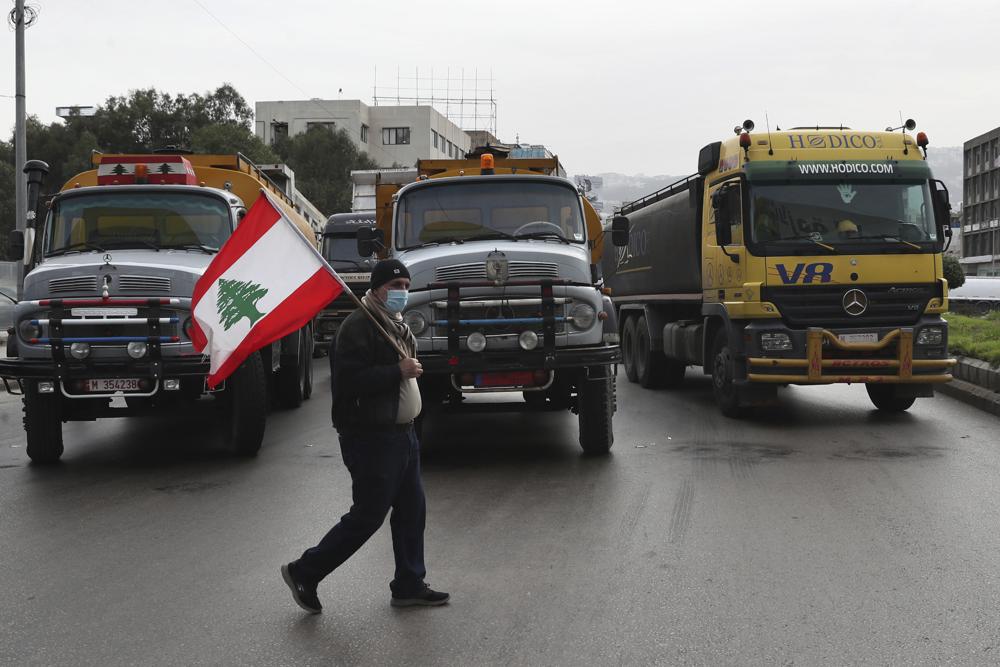The move comes as the country’s ruling class has done almost nothing to try to pull the country out of its meltdown, rooted in decades of corruption and mismanagement.
The political class that has run the small nation of 6 million people, including 1 million Syrian refugees, since the 1975-90 civil war is resisting reforms demanded by the international community.
Universities and schools were closed all over Lebanon and many people were not able to reach work because of road closures.
Demonstrators closed the country’s major highways as well as roads inside cities and towns starting at 5 a.m. The nationwide protests, dubbed a “day of rage”, are scheduled to last 12 hours.
Taxi and truck drivers used their vehicles to block roads to protest a sharp increase in fuel prices as the government lifted subsidies. They are demanding getting subsidized fuel again.
In the capital of Beirut, many roads were blocked by giant trash bins and vehicles.
About 80% of people in Lebanon live in poverty after the Lebanese pound lost more than 90% of its value. Lebanon’s economy shrank 20.3 in 2020 and about 7% last year, according to the World Bank.
